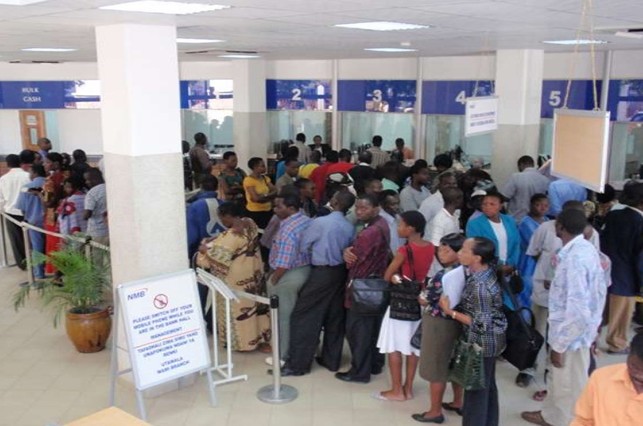ePayments failure causes customer queues and frustration in banking halls
By Jeph Ajobaju, Chief Copy Editor
Emigration of IT professionals and N45 billion Unstructured Supplementary Service Data (USSD) debt banks owe telecommunication companies are part of the reasons for the increasing failure of electronic payment channels.
The situation may get worse unless banks pay up in time, the Association of Licensed Telecoms Operators of Nigeria (ALTON) has warned.
Failure of USSD and Automated Teller Machine (ATM) channels has increased along with complaints, forcing a rise in visits to banking halls, an experience most customers thought they had put behind them.
Transaction failure, which began some years back, has risen significantly in the past few months, making it near impossible for customers to complete simple transactions from the comfort of their homes.
Complaints lodged with banks have increased and more customers are resorting back to across-the-counter transactions with the resultant long queues in banking halls.
“Banking apps have been crazy. I think it is a general problem. We don’t know when it will be resolved,” Temitayo Ogunjobi, who is based in the Apapa area of Lagos, told The Guardian which conducted the investigation.
__________________________________________________________________
Related articles:
Bank assets grow nearly 21% to N64.32tr in 12 months
Oil theft causes production firms to owe banks N6tr
Electricity GenCos and DisCos owe banks N861.14b
__________________________________________________________________
Non-dispensing ATMs
Emeka Francis, who lives in the Surulere area of Lagos, said he used his mobile banking App to transfer money to his relative twice and the transactions were reversed.
The challenge of Linus Okonta is non-dispensing at ATMs.
“You will get to ATMS, seven in a row. But only one will be dispensing money. How do you explain that?
“That is why you see queues, I mean the kind of queues we used to see during festive periods. They have become daily experiences,” he lamented.
Ogun residents have called on banks to be more professional, especially in customer service operations.
“My worst experience with the ATM was when I was stranded at Ayobo.
“I tried withdrawing from the nearest ATM terminal, but after waiting for more than 30 minutes, the terminal stopped dispensing,” recounted Mary Adegbite, a student who lives in Abeokuta.
“I was told the machine was out of cash. I got stranded because I did not have the cash to even move from one location to another.”
USSD hassles
Raliat Oyadeyi had her own challenge with USSD.
“I was to make an urgent transfer to my mum for medicals. I was debited but the recipient account was not credited for days. That was frustrating because I sent the balance to my account.
“The problem was not resolved until about a week later after I had visited the banks multiple times,” she said.
Telcos threaten to withdraw USSD service from banks
ALTON has threatened to withdraw their USSD service from banks because of mounting debts.
ALTON Chairman Gbenga Adebayo said banks’ USSD debt rose from N45 billion in May 2021 to N80 billion in September 2022.
He warned if the debt is not cleared in time, “telcos may be forced to withdraw their services from the banks. You all know what that means.”
Another source in ALTON told The Guardian, “We have not withdrawn the [USSD] service yet. If the services have been bad, then something fundamental must be wrong with the banks. It must be an internal issue.”
Exodus of IT workers affects banks’ customer service
More than 2,000 bank IT employees have relocated to greener pastures abroad in recent years, like many other professionals escaping bad governance in Nigeria.
ALTON Executive Secretary Ajibola Olude said the mass exodus of telecom experts, especially those in strategic positions in banks, is of great concern because it would lead to poor quality service.
A senior bank official who did not want her name disclosed confirmed the exit of professionals poses a serious threat to the banking system as it is partly responsible for some of the hitches experienced by customers.
“But as a responsible sector, we are working on those challenges. Banks will recruit and train more hands, invest in new infrastructure and upgrade those which need to be upgraded,” she said.




